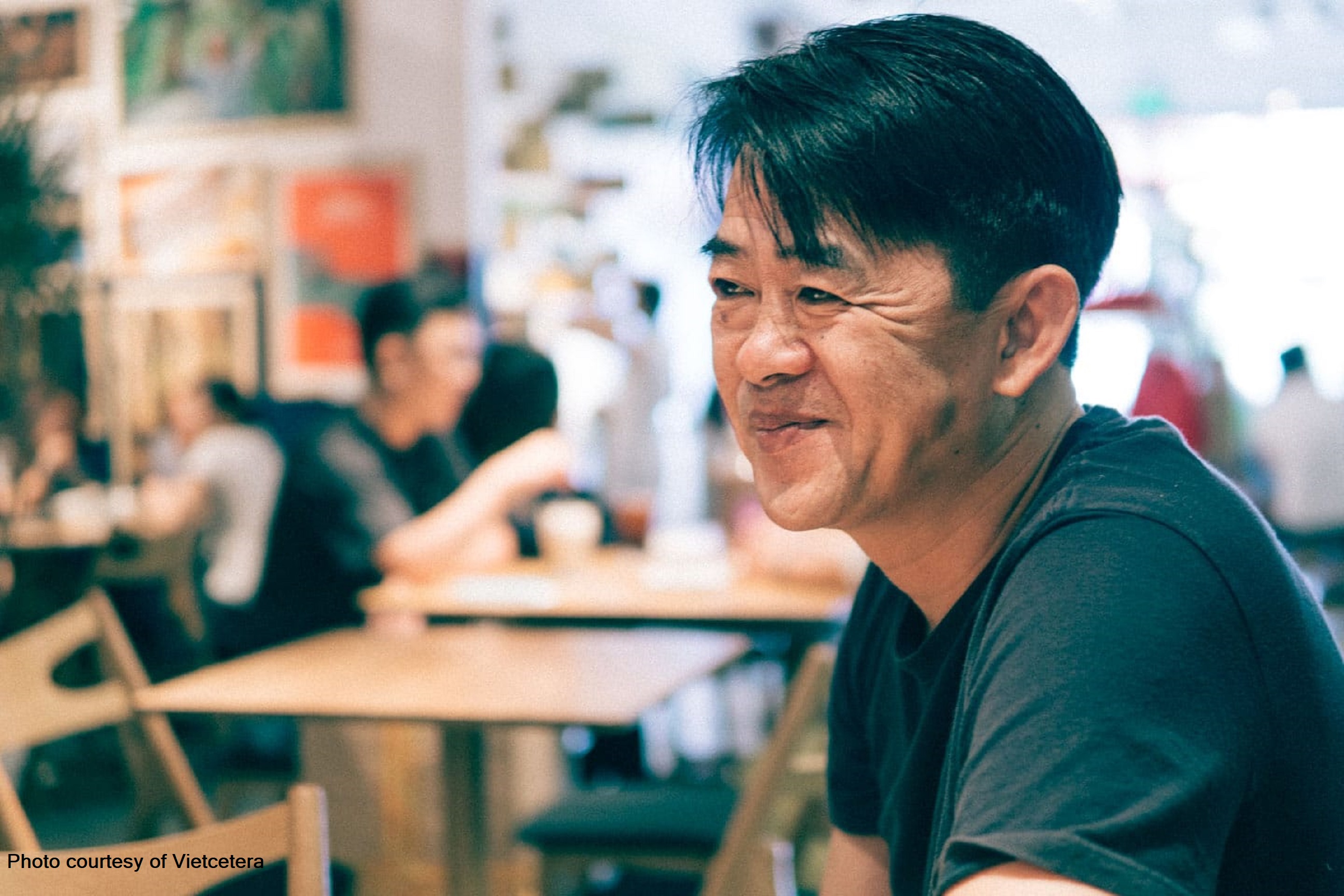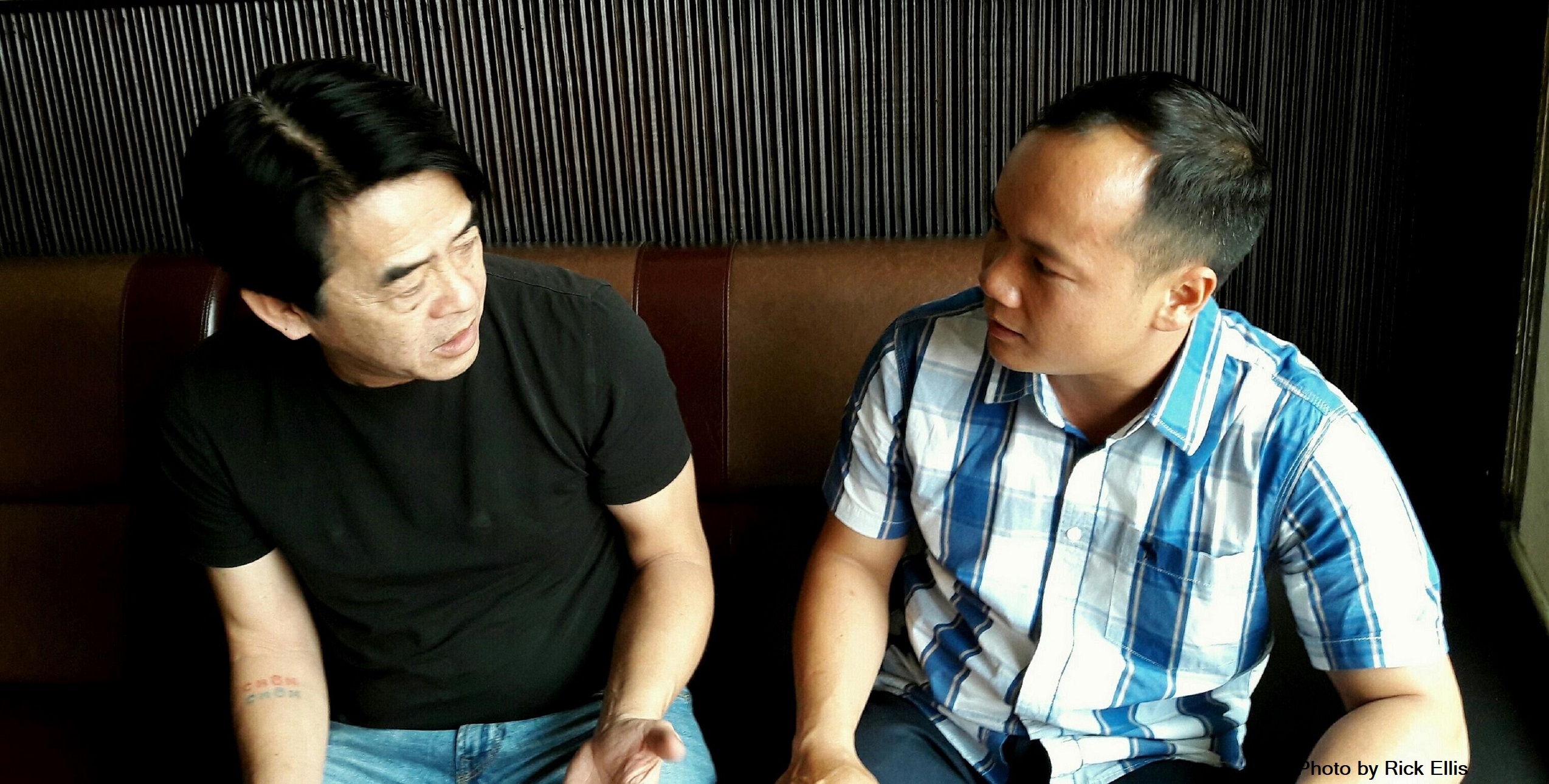Every time he pulled off his sports cap to smooth his hair, an unruly mop sprang out in several directions. We’re all in desperate need of a haircut these days, as the barber shops had been closed down to facilitate social distancing. Now those shops are packed to the rafters, so we’ll just have to bite the bullet for a couple of more weeks until things drift back to normal, whatever that may be.
It was our first personal meeting, taking place in the legendary Cafe Tung in Da Lat, a city landmark since the early 1960’s. We had already broken the ice during months of jousting on social networks, so we weren’t starting from scratch by any means.
He wouldn’t actually confess to enjoying my writings, perhaps for fear the conversation would veer off into an autobiographical contest of achievements sprinkled with geographical and cultural territory that we each cover. Fair enough, I can only listen to myself talking for a few minutes at a time, so I was more than content to follow the lecture and pepper him with the odd question, egging him on to reveal more.
Finally, he mumbled something about me residing in Da Lat being the origin of his initial interest. I couldn’t resist, barging in with a lengthy sermon extolling the virtues of his hometown and how it retains its European charm even though it’s situated in the Central Highlands of Vietnam.
The conversation had more tangents than l’Etoile in Paris (which is twelve to be precise), careening wildly off into politics, anthropology, history, religion, the Heartland (the U.S. Midwest), BREXIT (of all things), even flirting with the 'new normal' post-COVID-19, and, naturally, gastronomy. Just about the only thing we didn’t dissect is how the hell Ted Williams managed to achieve a career on a base average of 482 times per 1,000 Plate Appearances.
I had not set any objectives for the meeting, but had my hand been forced, I would have expected a pragmatic, food-obsessed Vietnamese American with a noticeable international tinge, ranting on about this dish or that, going through his menu, and bemoaning his unreliable suppliers.
Peter Cuong Franklin is much more than all that -- The Great Philosopher (and I interjected at one point to label him as such, receiving a roar of laughter in return), a visionary of the world of culture, a gastronomical guru.
Peter hit the ground running, as if continuing a philosophical coffee shop debate that had been going on for years, jumping in with his take on the challenge of a national cuisine thriving instead of just surviving.
I was instinctively wary of his concept that a national cuisine must remain fluid and agile, concerned that he was referring to the culinary flavour of the day, which is to keep adding and morphing random, trendy, ingredients until we end up with something we can’t even recognize, never mind respect as valued evidence of culture, all that with an oversized hunk of cheese and a blob of guacamole on top.
What’s the difference between thriving and surviving in the culinary context?
To an amateur like myself, there’s an intimidating distinction between recklessly abandoning traditional methods and leveraging creativity, innovation, and imagination. There must have been a hint of skepticism on my face which fueled a passionate monologue, as if he had been waiting for me to air my concerns.
He forged ahead, convincing me that producing the same bowl of pho from Hanoi to San Jose (California) would eventually lead to the descent of Vietnamese cuisine into mediocrity, falling into an abyss, joining roast beef with Yorkshire pudding or cassoulet a la Francaise, lost in the shuffle while the culinary world around it keeps evolving and rediscovering itself.
Peter sees cuisine as the indisputable, tangible evidence of culture, the litmus test, the spot where the rubber hits the road. Many would argue that the fine arts belong at the center of the podium, but a nation can’t nourish itself on either of those alone.
In Vietnam, the land of food, gastronomy is at the top of the list, precisely where it belongs, as any foodaholic will attest to without needing further rationale or justification.
Why would a Yale-educated investment banker chuck it all in and go for a career as a chef and restaurateur? Part of the rationale lies in Buddhism fundamentals which label desire as the root of all evil, which led to both of us laughing about how we finally divorced our happiness from endless cycles of accumulation and materialism.
When we leave this world, we won’t be taking anything with us, we’ll go naked, kicking, and screaming, precisely as we arrived, so our legacy will be the difference we made, what we improved, the mark we left, and that’s what drives Peter to new heights.
Obviously, the man knows what he’s doing, a pragmatic and creative businessman. Anyone who can find a way to flog a banh mi sandwich for US$100 at his high-end restaurant in Ho Chi Minh City when typical versions can be bought nearly anywhere for a tiny fraction thereof clearly has a flare for both cuisine and marketing.
By any measure, both Peter, his Anan restaurant, and Nhau Nhau bar are successes, recognized with a series of awards and citations, including most recently Vietcetera Grand Jury Award for Best Restaurant and Harper's Bazaar Chef of the Year.
Peter reinvents traditional dishes in new formats, tweaking and twisting, fiddling and fussing until assured that he’s nailed down the best and freshest ingredients, creating a unique delicacy, so his Da Lat roots are aces in the game.
Da Lat is the most recognizable agricultural brand in Vietnam, gaining popularity on the international scene as a farming hub, known for the rare types of produce grown here thanks to its temperate climate. When Peter can’t get the ingredients he needs to recreate what’s in his imagination, he digs around in his network until he finds a farmer willing to cultivate produce on a bespoke basis to get him precisely the quality he demands.
He cited asparagus, artichokes, baby carrots, and strawberries as examples, not referring to the regular mass-produced supermarket variety, rather those grown locally using organic methods or revolutionary Orlarock technology involving rocks and organic fertilizer imported from Australia (hydroponics on steroids if you will). Since Peter’s space is high-end cuisine, the top priority is quality ingredients.
|
|
| Da Lat veggies from Peter |
We also spent time with agriculturist Bui Anh Tuan, who bills himself as a simple farmer but is actually a leader in the organic farming community in Lam Dong Province where Da Lat is situated. Another man with a vision, so watching the two of them was like seeing two peas in a pod.
Tuan and his colleagues face logistical, marketing, and sales obstacles because they’re located outside Da Lat, but they have their arms around every issue and are committed to success, in it for the long run.
An idealist, stubbornly clinging to his principles (one of many qualities the two share), Tuan will never abandon his vision that organic farming is the future, high quality, sustainable, good for soil, and critical for the evolution of gastronomy in Vietnam.
|
|
| Peter (L) and Tuan at Cafe Tung |
As Vietnam develops rapidly the challenges will be sustainability for the long term, the transition from traditional to organic farming, and vertical pod technology being the critical foundation for future success.
Discussion surrounding the cultural hubs of Vietnam, namely Hue, Hanoi, and to some degree Hoi An, led Peter back to our beloved Da Lat, a national treasure needing to gain the international fame that it merits.
He shifted gears, sharing his vision that this city needs an injection of high-end class, unique Vietnamese cuisine, a cut above the usual fare easily found on any street, even going so far as hinting that such a project may be on his radar soon. Add a dash of European atmosphere, a romantic alleyway venue, just the right music, some fine wine, and away we go.
Oh, and how we feasted together the next day, local Da Lat specialties selected by the expert, peppered with dialogue about the origin, characteristics, and preparation of each dish. Watch this space, I wouldn’t be surprised if we were soon embarking on a new culinary mission right here in the hometown of the master of Vietnamese gastronomy.





















































